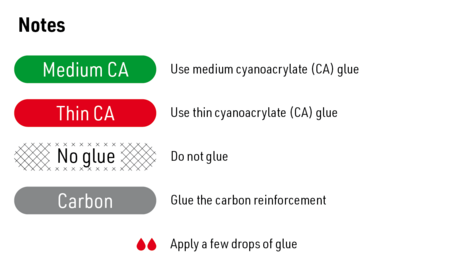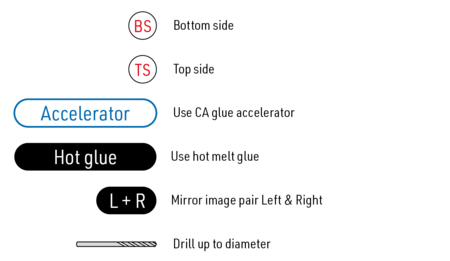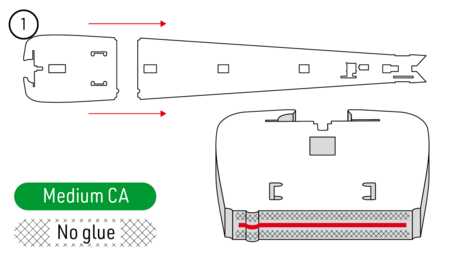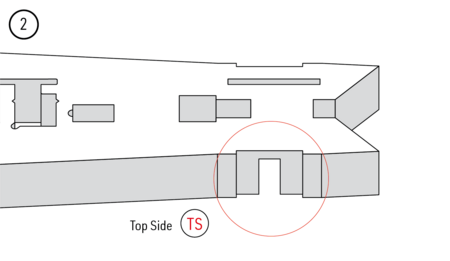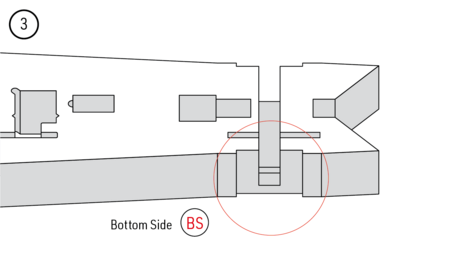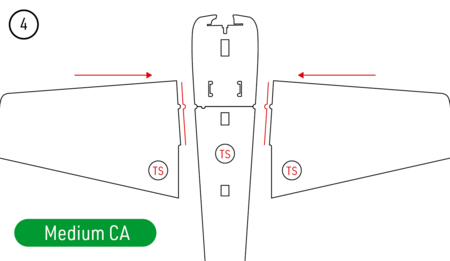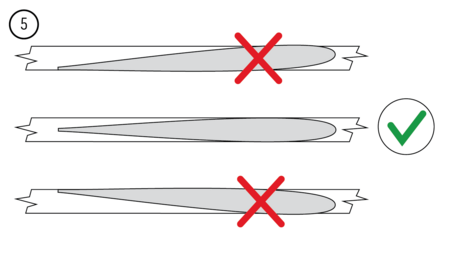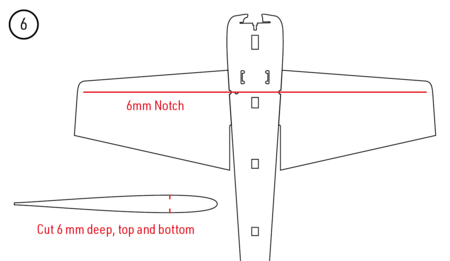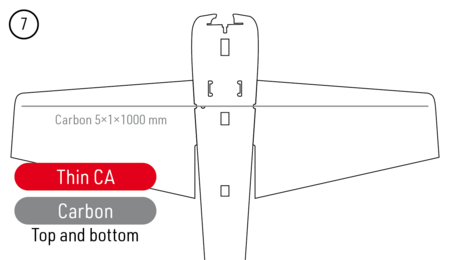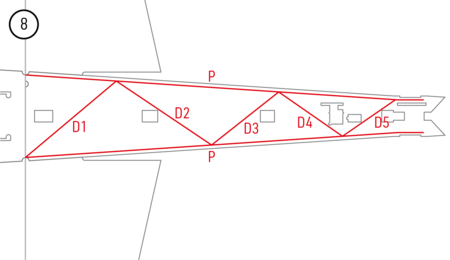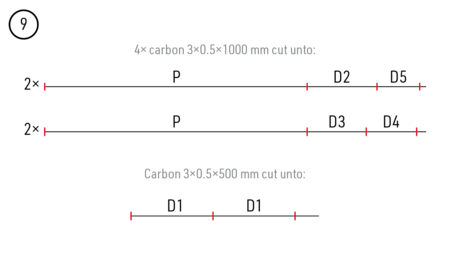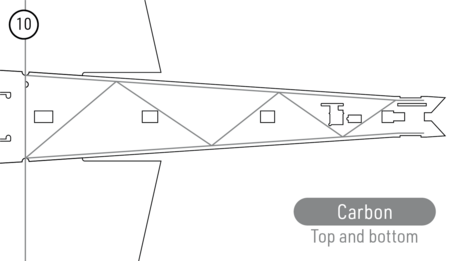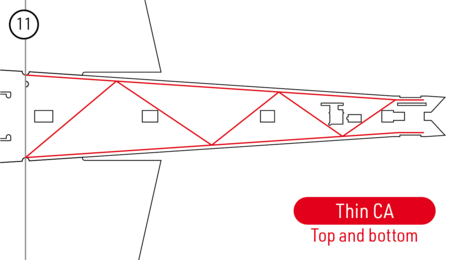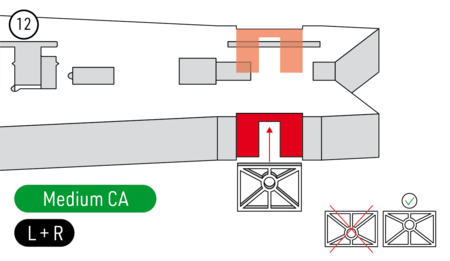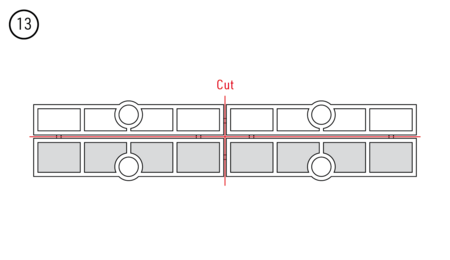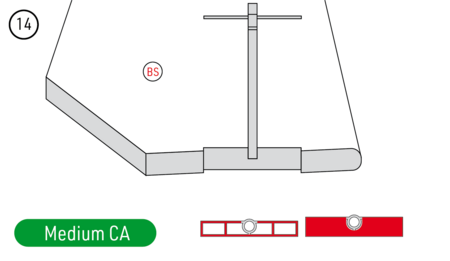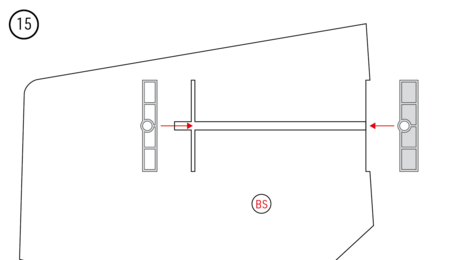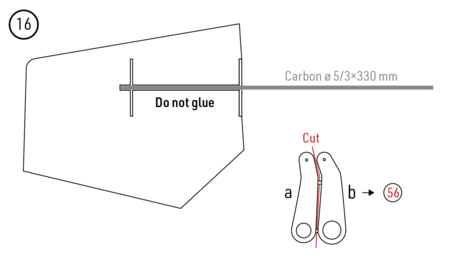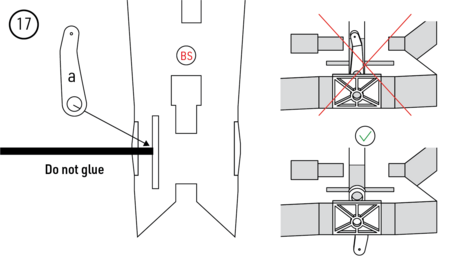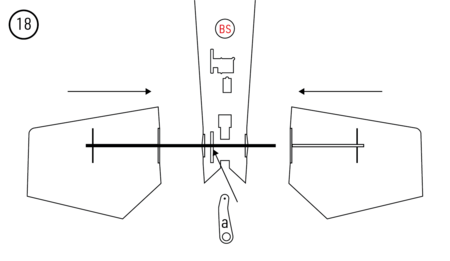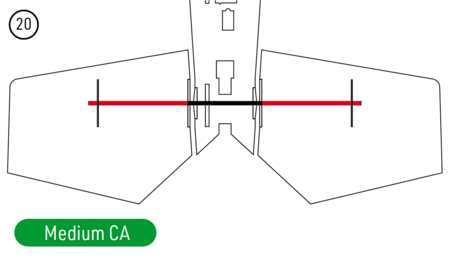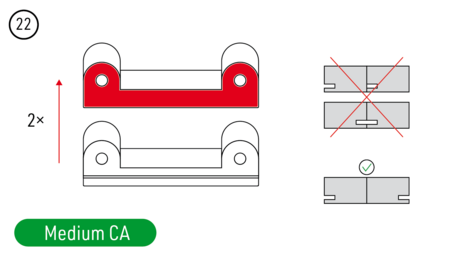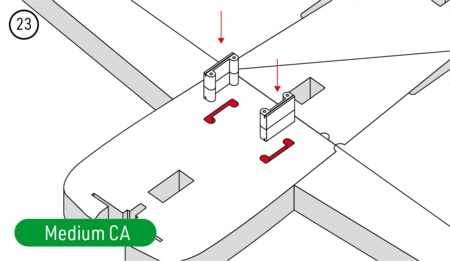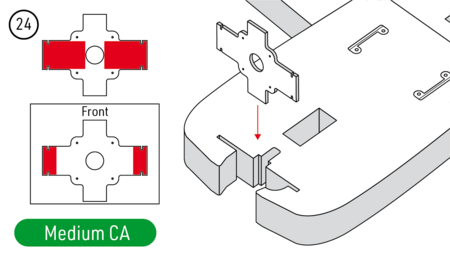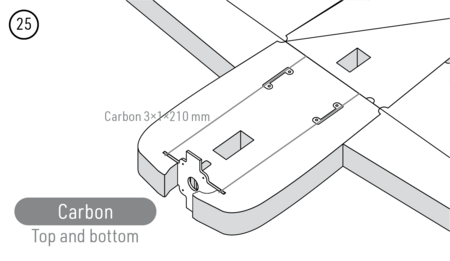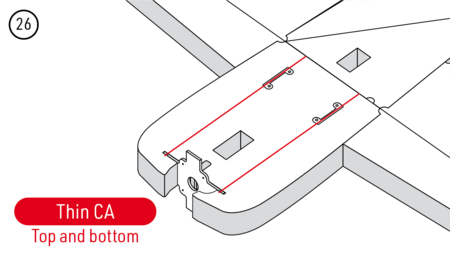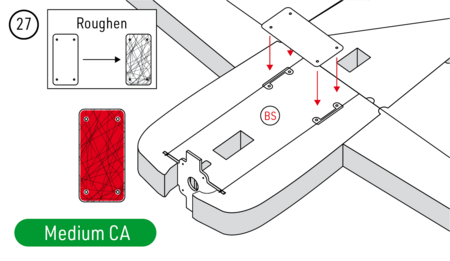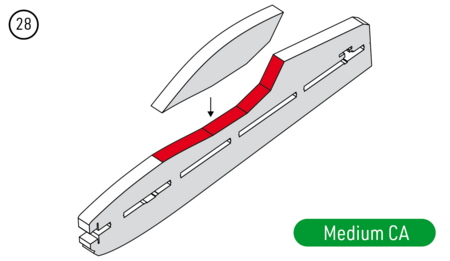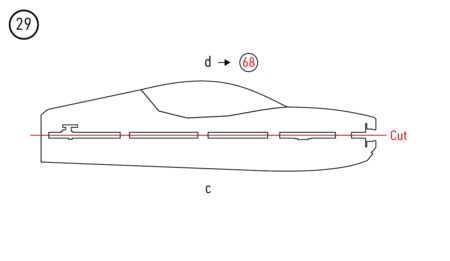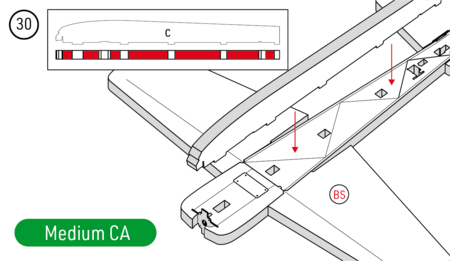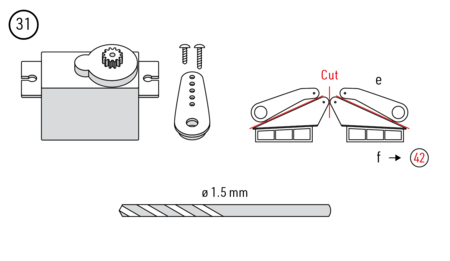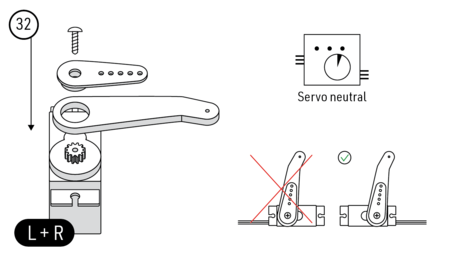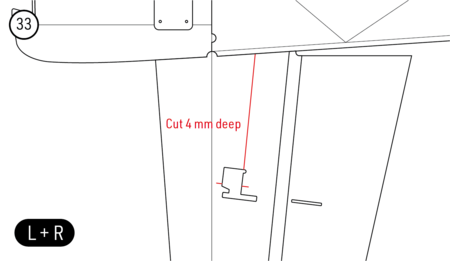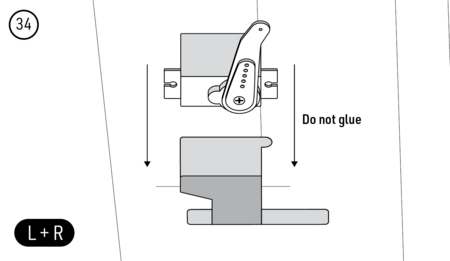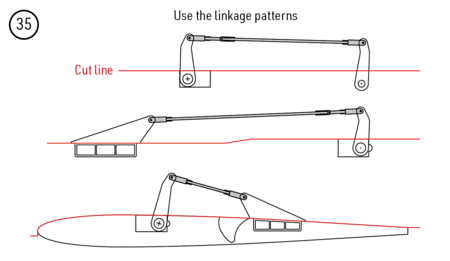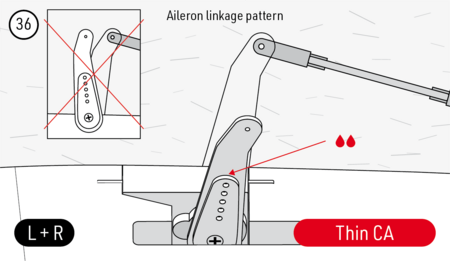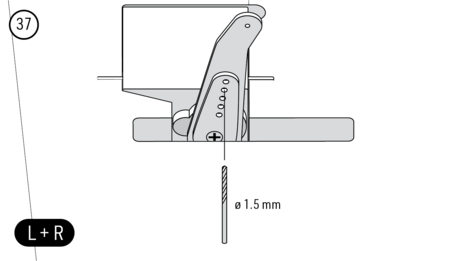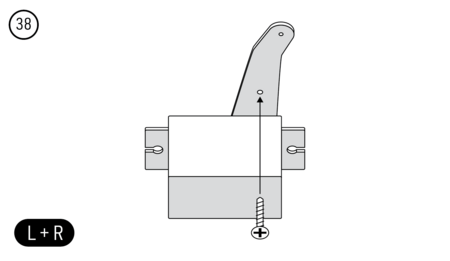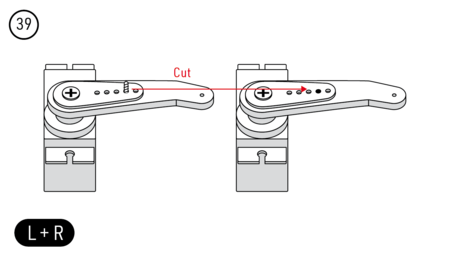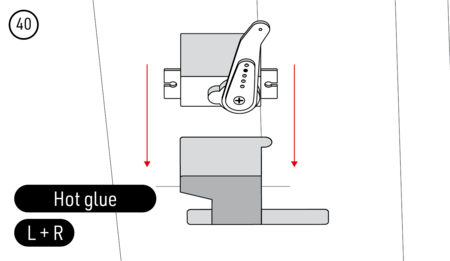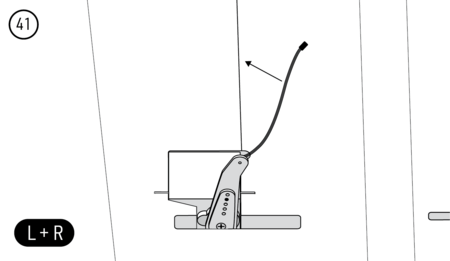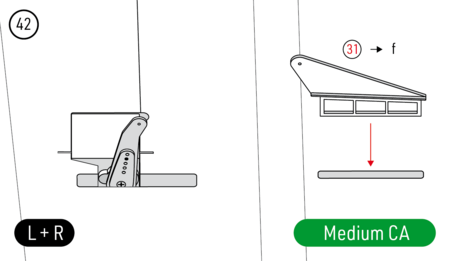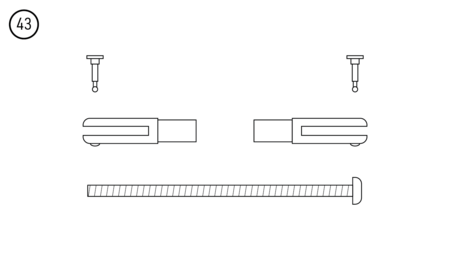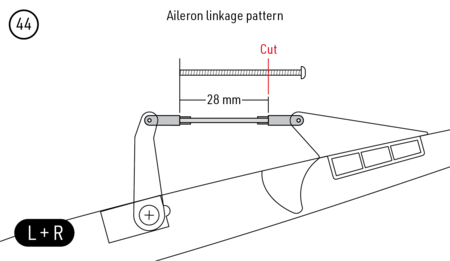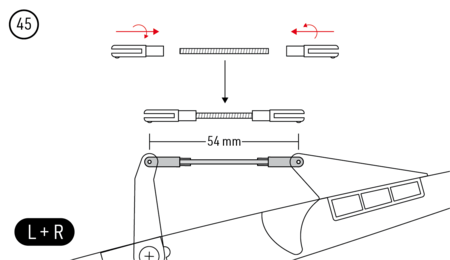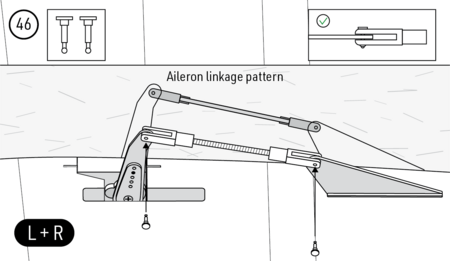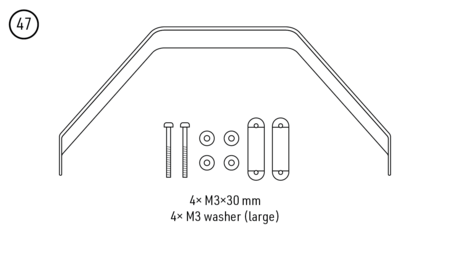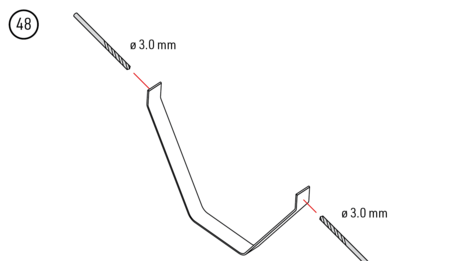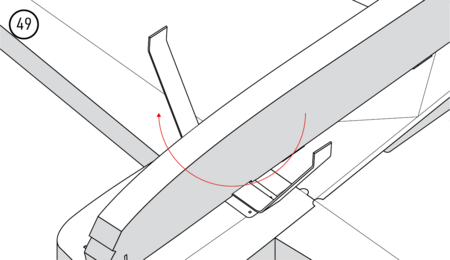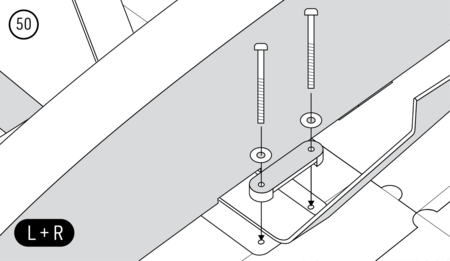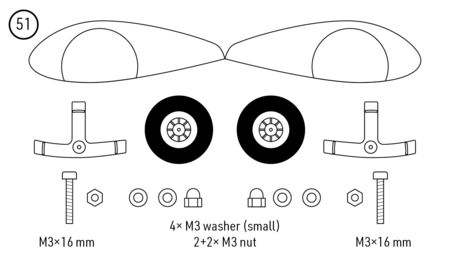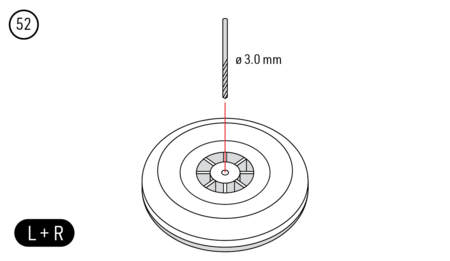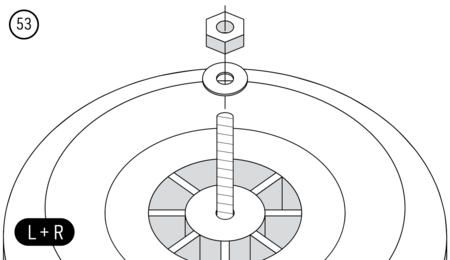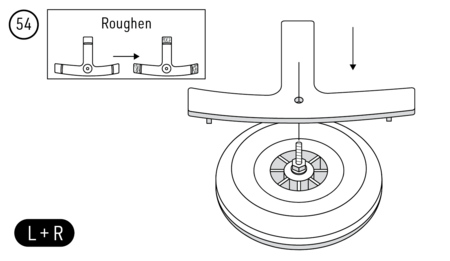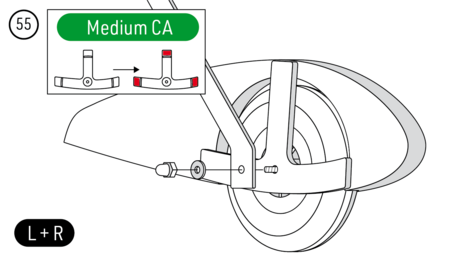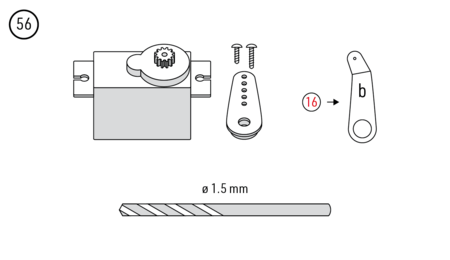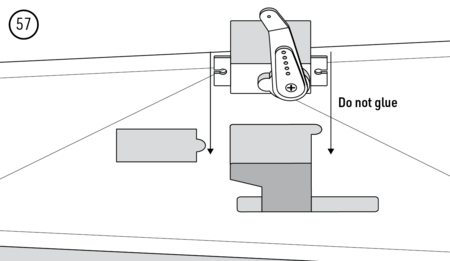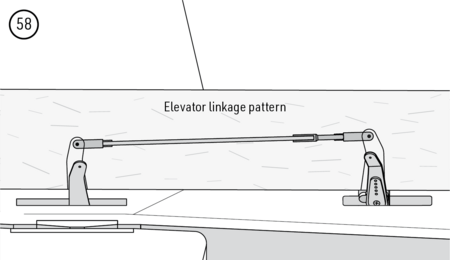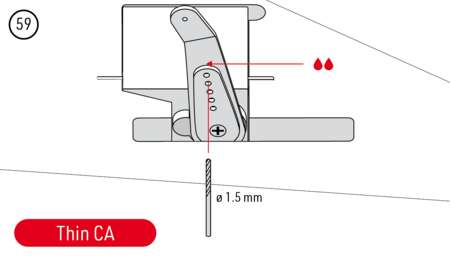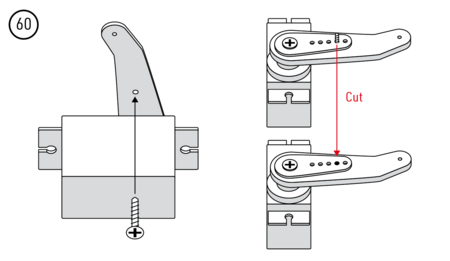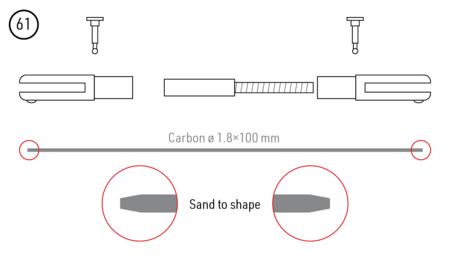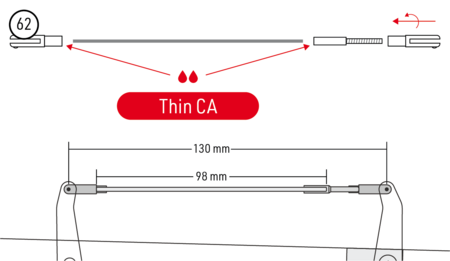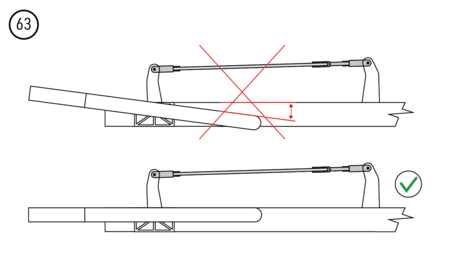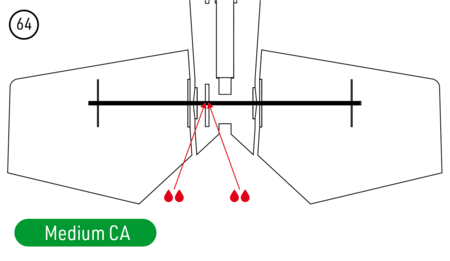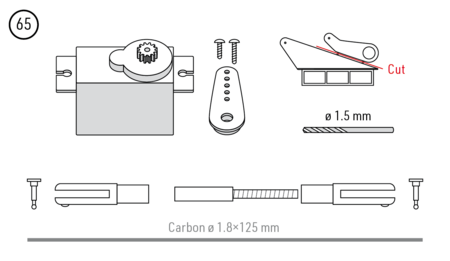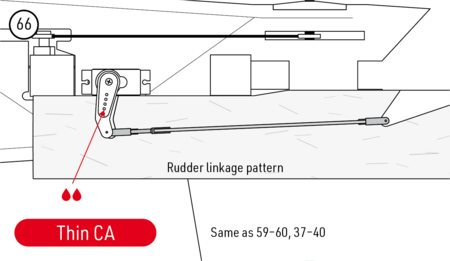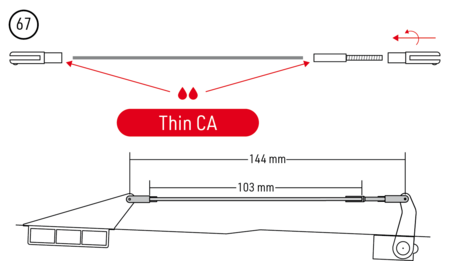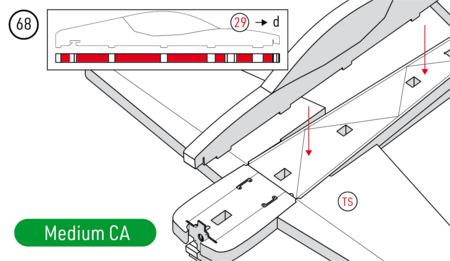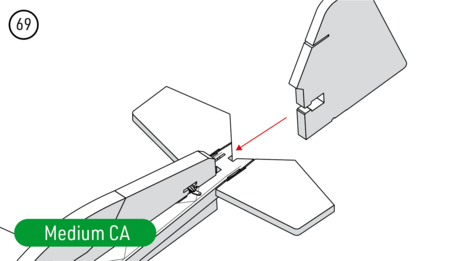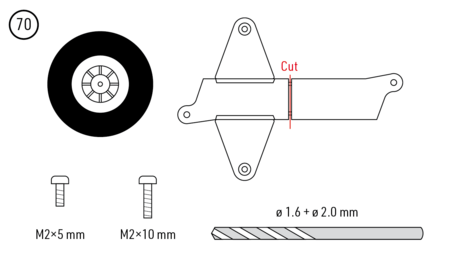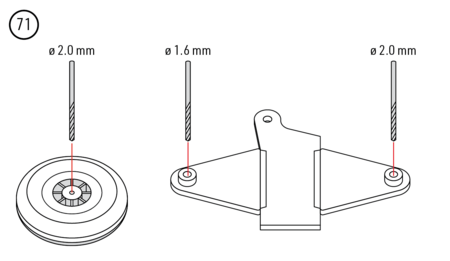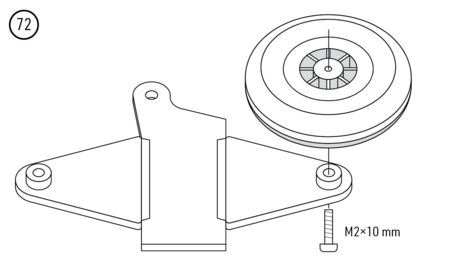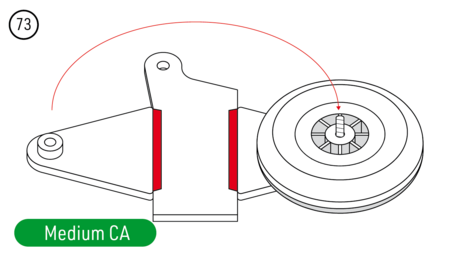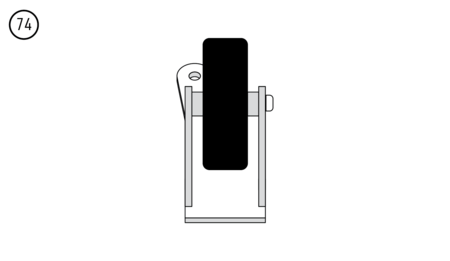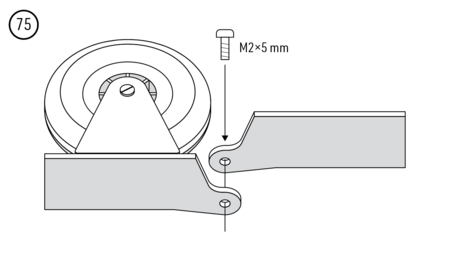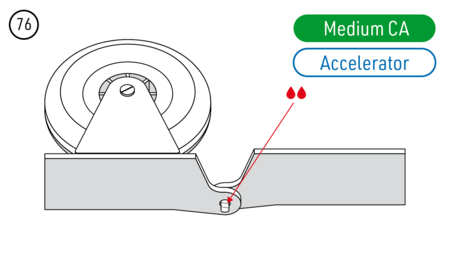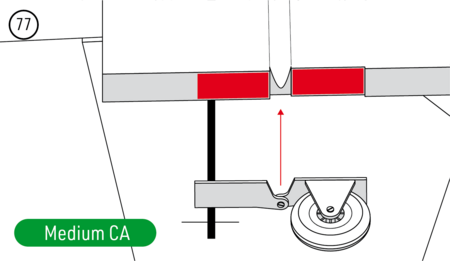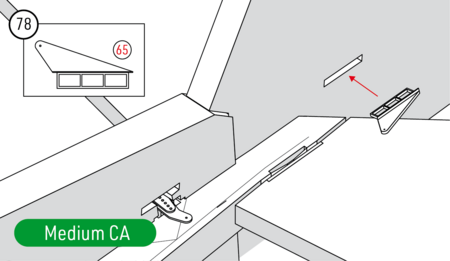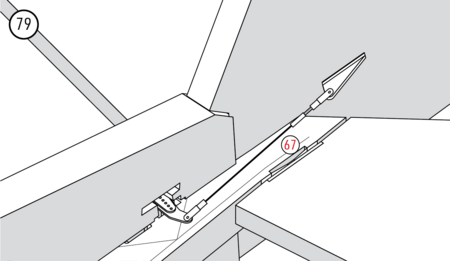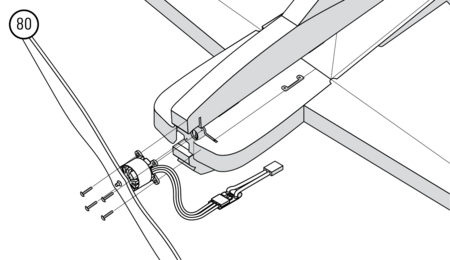KAVAN Savage MAX - Instruction manual/de: Difference between revisions
Mrs. Kavan (talk | contribs) (Created page with "# Falls Sie kein erfahrener Pilot sind, nehmen Sie die Hilfe eines kompetenten Piloten in Anspruch, der ihr zusammengebautes Modell überprüft und bei den Erststarts hilft. Obwohl wir Ihnen eine vollständige Anleitung zur Verfügung gestellt haben, ist ein Modellflugzeug ziemlich kompliziert und ein erfahrener Modellbauer kann schnell ihr Modell überprüfen und somit sicherstellen, dass ihre ersten Flüge erfolgreich werden. # Bitte bauen Sie Ihr Modell genau nach die...") |
Mrs. Kavan (talk | contribs) (Created page with "=== Sicherheitsmaßnahmen und Warnungen ===") |
||
| Line 15: | Line 15: | ||
'''Dieses RC-Modell ist kein Spielzeug. Benutzen Sie es mit Vorsicht und befolgen Sie die Anweisungen in dieser Anleitung genau.''' | '''Dieses RC-Modell ist kein Spielzeug. Benutzen Sie es mit Vorsicht und befolgen Sie die Anweisungen in dieser Anleitung genau.''' | ||
Sie sich an die Anweisungen in dieser Anleitung. Bauen Sie das Modell gemäß der Anleitung zusammen. Modifizieren und verändern Sie das Modell nicht. Bei Nichteinhaltung erlischt die Garantie. Folgen Sie der Anleitung um ein sicheres und haltbares Modell nach dem Zusammenbau zu erhalten. | |||
Kinder unter 14 Jahren müssen das Modell unter Aufsicht eines Erwachsenen betreiben. | |||
Versichern Sie sich vor jedem Flug, dass das Modell in einwandfreiem Zustand ist, dass alles einwandfrei funktioniert und das Modell unbeschädigt ist. | |||
Fliegen Sie nur an Tagen mit leichtem Wind und an einem sicheren Platz ohne Hindernisse. | |||
< | <span id="Safety_precautions_and_warnings"></span> | ||
=== | === Sicherheitsmaßnahmen und Warnungen === | ||
<div lang="en" dir="ltr" class="mw-content-ltr"> | <div lang="en" dir="ltr" class="mw-content-ltr"> | ||
Revision as of 15:42, 17 May 2024
Einführung
Herzlichen Glückwunsch zum Kauf des 3D-Kunstflugmodells SAVAGE MAX! Sie sind der Besitzer des nahezu unzerstörbaren Schaumstoffmodells aus EPP (extrudiertes Polypropylen) geworden, das mit einem leistungsstarken Brushless Motor angetrieben wird, der von LiPo-Akkus versorgt wird. Jeder, wer es bereits schafft, mit einem Modell mit Querrudern zu fliegen, wird das Steuern von SAVAGE MAX genießen!
Bevor Sie beginnen
- Falls Sie kein erfahrener Pilot sind, nehmen Sie die Hilfe eines kompetenten Piloten in Anspruch, der ihr zusammengebautes Modell überprüft und bei den Erststarts hilft. Obwohl wir Ihnen eine vollständige Anleitung zur Verfügung gestellt haben, ist ein Modellflugzeug ziemlich kompliziert und ein erfahrener Modellbauer kann schnell ihr Modell überprüfen und somit sicherstellen, dass ihre ersten Flüge erfolgreich werden.
- Bitte bauen Sie Ihr Modell genau nach dieser Anleitung auf. Versuchen Sie nicht es zu modifizieren oder zu verändern, da dies die Flugeigenschaften negativ beeinflussen kann.
- Bevor Sie beginnen, prüfen Sie den Inhalt des Baukastens auf Vollständigkeit und prüfen Sie, dass keine Teile beschädigt sind. Es hilft auch, sich mit den Teilen des Modells vertraut zu machen. Falls Teile fehlen oder beschädigt sind, wenden Sie sich umgehend an Ihren Händler. Berücksichtigen Sie, dass Ihr Händler keinen Baukasten zurücknehmen kann, bei dem mit dem Bau bereits begonnen wurde.
- Versuchen Sie zuerst die Teile zusammenzufügen, bevor Sie sie verkleben. Versichern Sie sich vor dem Zusammenbau, dass sie die korrekten Teile benutzen und dass sie gut zusammenpassen. Auch viel Kleber kann schlecht passende Teile nicht zurecht machen.
- Die Anleitung zeigt die Standardeinstellung des Schwerpunktes (CG) und empfohlene Ruderausschläge. Bitte berücksichtigen Sie, dass es wesentlich ist, den empfohlenen Schwerpunkt für die ersten Flüge beizubehalten, ansonsten könnte das Modell unstabil und schwer fliegen, oder gar nicht fliegen. Sie können den Schwerpunkt später tunen, um ihn an ihren Flugstil und ihr Können anzupassen.
Vorsichtsmaßnahmen
Dieses RC-Modell ist kein Spielzeug. Benutzen Sie es mit Vorsicht und befolgen Sie die Anweisungen in dieser Anleitung genau.
Sie sich an die Anweisungen in dieser Anleitung. Bauen Sie das Modell gemäß der Anleitung zusammen. Modifizieren und verändern Sie das Modell nicht. Bei Nichteinhaltung erlischt die Garantie. Folgen Sie der Anleitung um ein sicheres und haltbares Modell nach dem Zusammenbau zu erhalten.
Kinder unter 14 Jahren müssen das Modell unter Aufsicht eines Erwachsenen betreiben.
Versichern Sie sich vor jedem Flug, dass das Modell in einwandfreiem Zustand ist, dass alles einwandfrei funktioniert und das Modell unbeschädigt ist.
Fliegen Sie nur an Tagen mit leichtem Wind und an einem sicheren Platz ohne Hindernisse.
Sicherheitsmaßnahmen und Warnungen
- An RC aeroplane is not a toy! If misused, it can cause serious bodily harm and damage to property. Fly only in a safe place, following all instructions and recommendations in this manual. Beware of the propeller! Keep loose items that can get entangled in the propeller away from the spinning propeller, including loose clothing, or other objects such as pencils and screwdrivers. Ensure that your and other people’s hands and face are kept away from the rotating propeller.
- As the user of this product, you are solely responsible for operating it in a manner that does not endanger yourself and others or result in damage to the product or the property of others. This model is controlled by a radio signal that is subject to interference from many sources outside your control. This interference can cause momentary loss of control, so it is advisable to always keep a safe distance in all directions around your model, as this margin will help to avoid collisions or injury.
- Never operate your model with low transmitter batteries.
- Always operate your model in an open area away from power lines, cars, traffic, or people. Avoid operating your model in populated areas where injury or damage can occur.
- Carefully follow the directions and warnings for this and any optional support equipment (chargers, rechargeable batteries, etc.) which you use.
- Keep all chemicals, small parts and anything electrical out of the reach of children.
- Moisture causes damage to electronics. Avoid water exposure to all equipment not specifically designed and protected for this purpose.
- The model is mostly made of plastic - it is not fireproof. It may not be exposed to higher temperatures, otherwise severe distortion of the foam airframe or other damage may occur.
Specification
| Wingspan | 1080 mm |
| Length | 1200 mm |
| All-up weight | ca 850 g |
You will also need
- At least four channel RC set, a power unit with 3–4S LiPo flight pack and servos - refer to "Recommended power systems and servos".
- Regular modeller’s tools: modeller’s knife (KAV66.770), screwdrivers, pliers, electric drill with drill bits (1.5mm, 1.6mm, 2.0mm, 3.0mm), No. 180–360 sandpaper, etc.
- Glue: medium (KAV56.9952) and thin (KAV56.9951) CA glue, accelerator for CA glue (KAV56.9958 / KAV56.9959), hot melt glue.
Recommended power systems and servos
- Sunday Acro: For aerobatic beginners and Sunday flyers; for everybody who prefers classic pattern aerobatics with a light and virtually unbreakable foam model.
- Acro: For sporty flyers preferring pattern aerobatics.
- Sunday 3D: For 3D aerobatic beginners and Sunday flyers.
- 3D: For everybody who likes it hot and 3D.Note: 40–45A ESC with a good linear BEC should be OK if you are using analogue servos; however, if you are using high torque & speed digital servos, you should go for an ESC featuring powerful switching SBEC.
| 3S LiPo | Sunday Acro | Acro |
|---|---|---|
| Motor | KAVAN C3536–1250 | KAVAN PRO 3536–1150 |
| Propeller | APC 10×5"E | APC 10×5"E |
| ESC | KAVAN R–40B | KAVAN PRO–40SB |
| Battery | KAVAN LiPo 11.1V 1800mAh 30/60C |
KAVAN LiPo 11.1V 1300mAh 40/80C |
| Servos | KAVAN GO–13MG, Hitec HS- -65MG, HS–70MG |
KAVAN GO–1013MG, Hitec HS–5065MG, HS–5070MH |
| 3S LiPo | Sunday 3D | 3D |
|---|---|---|
| Motor | KAVAN C3536–1000 | KAVAN PRO 3536–1000 |
| Propeller | APC 11×4.7"SF | APC 11×4.7"SF |
| ESC | KAVAN R–40B | KAVAN PRO–40SB |
| Battery | KAVAN LiPo 11.1V 1800mAh 40/80C |
KAVAN LiPo 11.1V 1300mAh 40/80C |
| Servos | KAVAN GO–13MG, Hitec HS- -65MG, HS–70MG |
KAVAN GO–1013MG, Hitec HS–5065MG, HS–5070MH |
| 4S LiPo | Acro | 3D |
|---|---|---|
| Motor | KAVAN PRO 3536–1150 | KAVAN PRO 3536–1000 |
| Propeller | APC 9×5"E | APC 10×4.7"SF |
| ESC | KAVAN PRO–40SB | KAVAN PRO–40SB |
| Battery | KAVAN LiPo 14.8V 1300mAh 40/80C |
KAVAN LiPo 14.8V 1300mAh 40/80C |
| Servos | KAVAN GO–1013MG, Hitec HS–5065MG, HS–5070MH |
KAVAN GO–1013MG, Hitec HS–5065MG, HS–5070MH |
Assembly
Follow the illustrated, step-by-step building manual at the bottom of the page, please.
RC set installation and preflight check
- Referring to the instruction manual of your radio carefully hook up the onboard electronics. The full-size patterns (pages 18–19) will help you to set the correct linkage length and control surface neutral position - refer to assembly steps 35–36, 46 and 58.
- Once everything has been correctly connected, turn on your transmitter and plug in the flight pack. Check the neutral positions and throws of all control surfaces. If you need to make the control surface throws smaller, simply move the pushrod closer to the centre on the servo arm or move it far from the control surface on the control horn. And vice versa.
| Recommended throws | Low rate | High rate | ||
| Rate | Expo | Rate | Expo | |
| Ailerons | ± 35° | 45 % | ± 50° or more | 45 % |
| Elevator | ± 30° | 45 % | ± 50° or more | 45 % |
| Rudder | ± 35° | 50 % | ± 47° | 50 % |
- The "Low rate" recommended control surface throws are suitable for a less skilled pilot and classic pattern aerobatics; the "High rate" setting is for 3D aerobatics and skilled pilots.
- Check the direction of rotation of the propeller. If it was incorrect, simply swap two of the three wires between the ESC and motor or program the ESC (refer to the ESC manual).
- Attach the flight pack to the side of the bottom part of the fuselage using a strip of hook-and-loop tape to get the correct position of the centre of gravity (CG) 260 mm, refer to Fig. 81. You can fine-tune the CG position later to suit your flying style.
- Fully charge your flight pack and transmitter batteries, check the proper function of your radio and perform the range check of your radio according to its instruction manual. The range has to be almost the same with the motor off and at full throttle (no more than a 10% decrease is acceptable). DO NOT try to fly unless the range check is 100 % successful.
Flying
The test flying and fine-tuning is pretty much straightforward, there will be no surprise for a medium-advanced pilot that is supposed to fly this model.
Parts list
The manual step No. will help you identify the part.
Main parts
| Part | Qty | Material | Dimensions | Step No. |
|---|---|---|---|---|
| Instruction manual | 1 | paper | A4 | - |
| Fuselage - top vertical part | 1 | EPP | - | 68 |
| Fuselage - bottom vertical part | 1 | EPP | - | 28 |
| Fuselage - front horizontal part | 1 | EPP | - | 1 |
| Fuselage - rear horizontal part | 1 | EPP | - | 1 |
| Wing - left + right | 1+1 | EPP | - | 4 |
| Canopy | 1 | EPP | - | 28 |
| Fin and rudder | 1 | EPP | - | 69 |
| All-moving tailplane - left + right | 1+1 | EPP | - | 14 |
| Wheel pant | 2 | EPP | - | 51 |
| Main undercarriage | 1 | carbon | - | 47 |
Carbon parts bundle
| Part | Qty | Material | Dimensions | Step No. |
|---|---|---|---|---|
| Wing spar | 2 | carbon | 5×1×1000 mm | 7 |
| Fuselage reinforcement | 4.5 | carbon | 3×0.5×1000 mm | 8, 9 |
| All-moving tailplane tube | 1 | carbon | Ø 5/3.5×330 mm | 16 |
| Nose reinforcement | 1 | carbon | 3×1×1000 mm | 21 |
Small accessories bag
| Part | Qty | Material | Dimensions | Step No. |
|---|---|---|---|---|
| Firewall | 1 | plywood | 3 mm | 21 |
| Elevator push rod | 1 | carbon | Ø 1.8×100 mm | 61 |
| Rudder push rod | 1 | carbon | Ø 1.8×125 mm | 65 |
| Aileron horns | 1 set | plastic | - | 31 |
| Rudder horn | 1 set | plastic | - | 65 |
| Elevator horn | 1 set | plastic | - | 16 |
| Undercarriage plate | 1 | fibreglass | - | 27 |
| Wheel | 2 | plastic | Ø 50 mm | 51 |
| Tailwheel | 1 | plastic | Ø 25 mm | 70 |
| Wheel pant holder | 2 | plastic | - | 51 |
| Wheel axle | 2 | steel | M3×16 mm socket screw | 51 |
| M3 nut | 4 | steel | M3 | 51 |
| M3 nut large | 2 | steel | M3 | 51 |
| M3 washer small | 4 | steel | Ø 6 mm | 51 |
| M3 washer large | 4 | steel | Ø 9 mm | 47 |
| Undercarriage bolt | 4 | steel | M3×30 mm socket screw | 47 |
| Undercarriage bolt holder | 4 | plastic | - | 21 |
| Undercarriage bracket | 2 | plastic | - | 47 |
| Tailwheel bracket | 1 set | plastic | - | 70 |
| Tailwheel axle | 1 | steel | M2×10 mm screw | 70 |
| Tailwheel bracket axle | 1 | steel | M2×5 mm screw | 70 |
| All-moving tailplane bearing | 2 | plastic | - | 12 |
| Part | Qty | Material | Dimensions | Step No. |
|---|---|---|---|---|
| Tailplane tube holder | 1 set | plastic | - | 13 |
| Clevis | 8 | plastic | - | 43, 61, 65 |
| Clevis pin | 8 | brass | - | 43, 61, 65 |
| Aileron push rod | 2 | steel | M2×40 mm screw | 43, 44 |
| M2 threaded coupler | 2 | brass | - | 61, 65 |
Assembly
Follow the illustrated, step-by-step building manual below.
Guarantee
The KAVAN Europe s.r.o. products are covered by a guarantee that fulfils currently valid legal requirements in your country. If you wish to make a claim under a guarantee, please contact the retailer from whom you first purchased the equipment. The guarantee does not cover faults caused in the following ways: crashes, improper use, incorrect connection, reversed polarity, maintenance work carried out late, incorrectly or not at all, or by unauthorised personnel, use of other than genuine KAVAN Europe s.r.o. accessories, modifications or repairs which were not carried out by KAVAN Europe s.r.o. or an authorised KAVAN Europe s.r.o., accidental or deliberate damage, defects caused by normal wear and tear, operation outside the Specification, or in conjunction with equipment made by other manufacturers. Please be sure to read the appropriate information sheets in the product documentation!
If you have any questions about the SAVAGE Max and its operation, please contact the technical and service staff at KAVAN Europe s.r.o. by e-mail (info@kavanrc.com for general technical information, service@kavanrc.com for service) or by phone (+420 466 260 133 for general technical information, +420 463 358 700 for service), during working hours 8:00 AM–4:00 PM CET, Monday to Friday).
